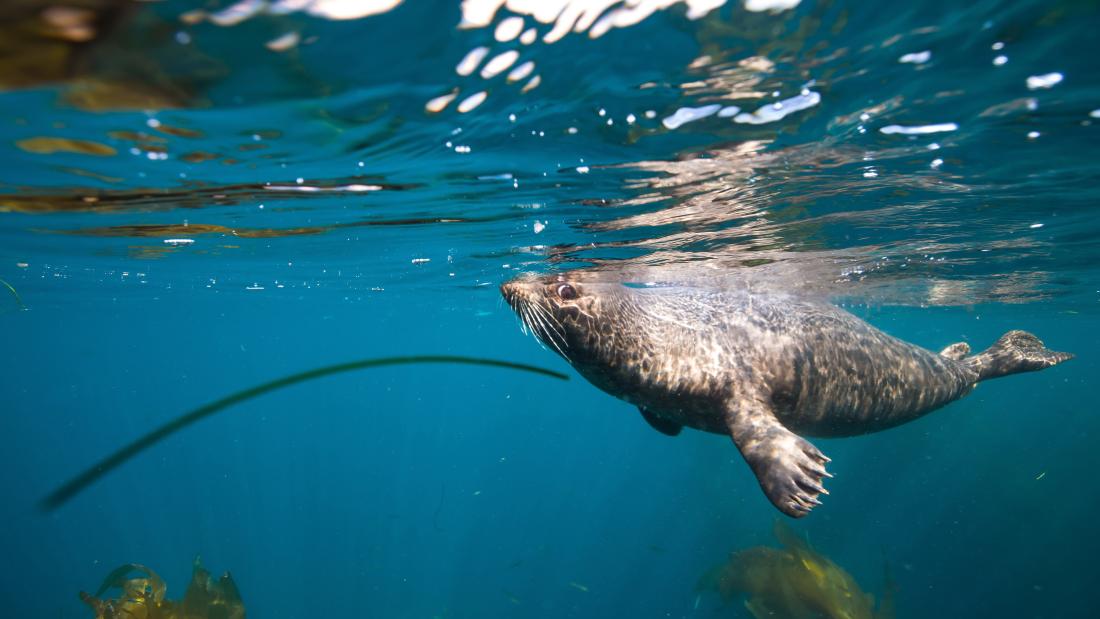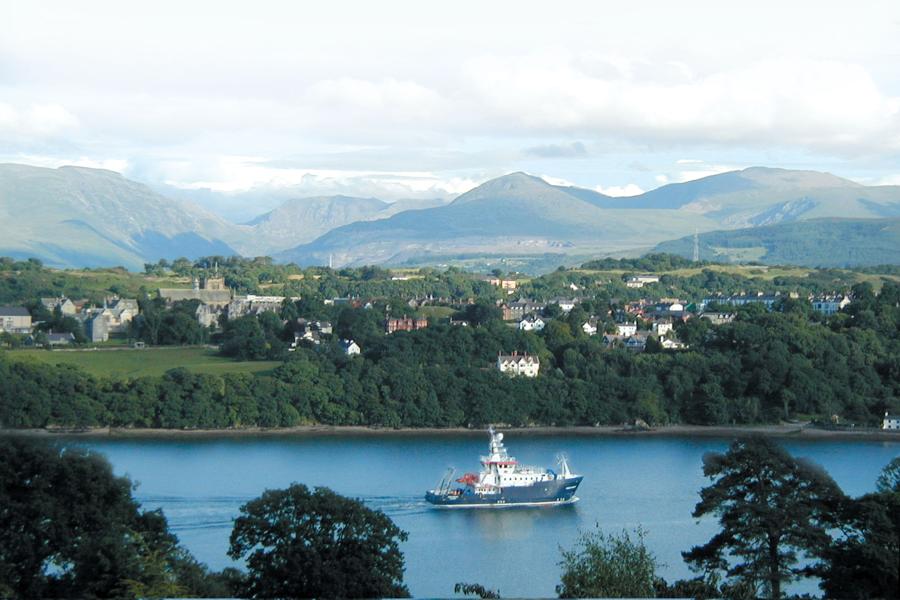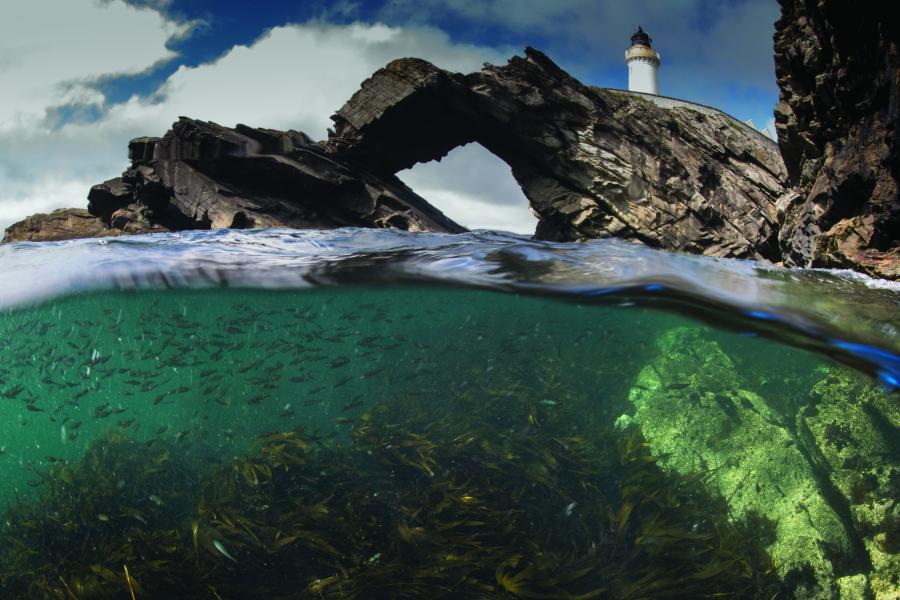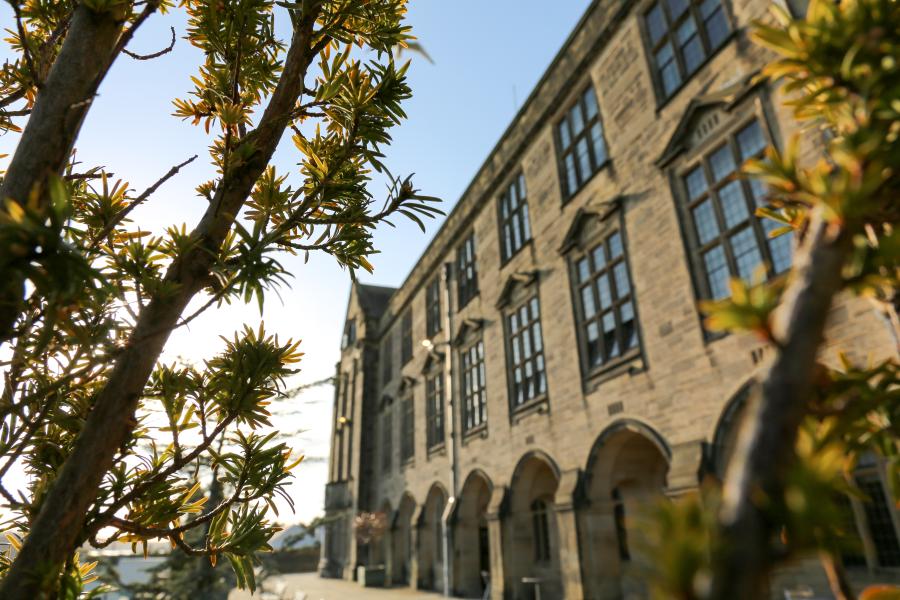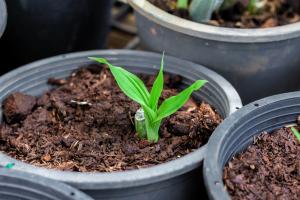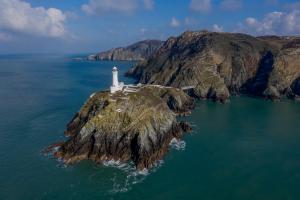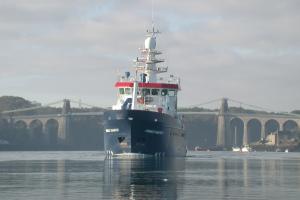Why Study Marine Biology?
The increasing global population, coupled with challenges posed by climate change, place increasing pressure on the Earth resources. Marine Biologists have a key role to play in the development of sustainable future food resources against a backdrop of climate change and increasing levels of waste.
Wild-capture fisheries and aquaculture together produce ~200 million tonnes of food per year with a great potential for expansion. As a Marine Biologist you will gain the knowledge and skills to manage these important resources and to ensure that they are managed in a sustainable way so that the natural environment is conserved.
By studying Marine Biology, you will gain the critical appraisal skills to identify and define problems, and the analytical skills to be able to find solutions.
- We are one of the largest university centres teaching Marine Sciences in Britain.
- We have a £3.5m ocean-going research ship and three smaller inshore vessels.
- Our excellent facilities include tropical marine and temperate marine aquaria, analytical laboratories, flow and particle transport simulators and computing capabilities.
- We have unrivalled access to the sea and sea shore, ideal for undertaking experimental work in the intertidal environment.
I choose to study here because of the University’s proximity to the coast and mountains and outdoor lifestyle. I was aware of established reputation of the School of Ocean Sciences in marine sciences and the extensive range of facilities and expertise available within the school.
Career Opportunities in Marine Biology
Marine Biology is an ideal preparation for careers in research, conservation, marine resource management, fisheries and aquaculture, government advisory bodies, the scientific media, ecotourism and other leisure industries, pressure groups and many unrelated areas that require analytical skills provided by our Marine Biology programmes. Our Marine Biology graduates have moved into careers in aquaculture, marine conservation, fisheries, ecotourism and fish and shellfish culture.
Our Research in Marine Biology
Bangor University has a long track record of Marine Biology research stretching back over 100 years. Our research covers the full marine realm, ranging from semi-terrestrial habitats such as saltmarshes to the deep sea and from the poles to the tropics. We currently have research projects which focus on Antarctic fjords and Indian Ocean Coral reefs.
An important strand of Marine Biology research here at Bangor University focuses on conservation and marine resource management. Our research examines how anthropogenic disturbances such as exploitation, invasive species and climate change affect marine ecosystems, and how to best manage and protect these ecosystems.
Our research underpins the sustainable exploitation and production of wild-capture fish and aquaculture. It also covers the wider impacts of fisheries and aquaculture on the marine ecosystem and how they can affect bycatch species (other fish, seabirds, marine mammals, seabed organisms) and habitats (e.g. reefs, seagrass beds). It also underpins our development of sustainable tropical fish hatcheries.
You may also be interested in these related subject areas.
You may also be interested in these related subject areas.

